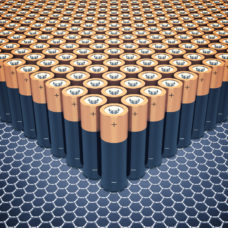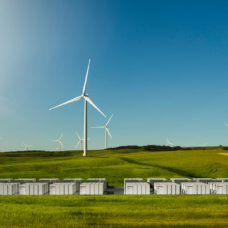At 94, John B. Goodenough, the co-inventor of lithium-ion batteries which power almost all high-tech devices, doesn’t intend to stop: he has created a new glass battery that is even more efficient than lithium-ion technology.
Lithium-ion battery generates electricity by reversible exchange of lithium ions between the anode and the cathode (two graphite and metal oxide electrodes). Lithium-ion batteries offer several advantages: they charge fast and have higher energy density, which makes them lighter and their lifespan longer. But they also present some risks in case of leakage or overheating for example.
We owe the lithium-ion battery to John Bannister Goodenough, a professor at the Cockrell School of Engineering at the University of Texas. Goodenough and his team are behind the identification and development of the cathode material used in lithium-ion batteries that are now present in most electronic devices as well as in electric vehicles.
Glass Battery has Triple the Efficiency of Current Batteries
The solid-state physicist, now 94-year-old, doesn’t intend to retire yet. He has invented a battery that is even more efficient than the Li-ion one, and that would adapt to different devices and engines.
Goodenough and researcher Maria Helena Braga led a team of researchers from the Cockrell School of Engineering to develop a new battery with stronger and safer solid electrolyte. An article on the new technique was published in the journal Energy and Environmental Science.
This invention has been made possible by replacing liquid electrolytes with glass, and lithium with sodium, which is much less expensive to procure thereby reducing the cost of manufacturing the batteries. The researchers developed a solid glass-based electrolyte with an alkaline metal anode that can be composed of lithium, sodium or potassium.
A New Glass Cieling
Glass batteries offer three times more energetic density than lithium-ion type while being safer (non-flammable), more durable and compatible with fast charging systems.
By using glass instead of the lithium, the risk of dendrites that form between the anode and the cathode is eliminated (which can lead to short circuits, battery expansion, and explosions). The other advantage of glass is that it allows the battery to function at hot and frigid temperatures, ranging from -20 to 60 degrees centigrade.
Still in the development stages, this new glass battery addresses many problems of current batteries, such as storage capacity, charging time and the lifespan, not to mention safety. They can be used for all electronic devices (smartphones, tablets, and laptops) and also electric vehicles.


















Thanks a lot for the given this nice post follow http://windowstuts.net/mobile and seen the bluetooth audio devices connections in windows 10 mobile.